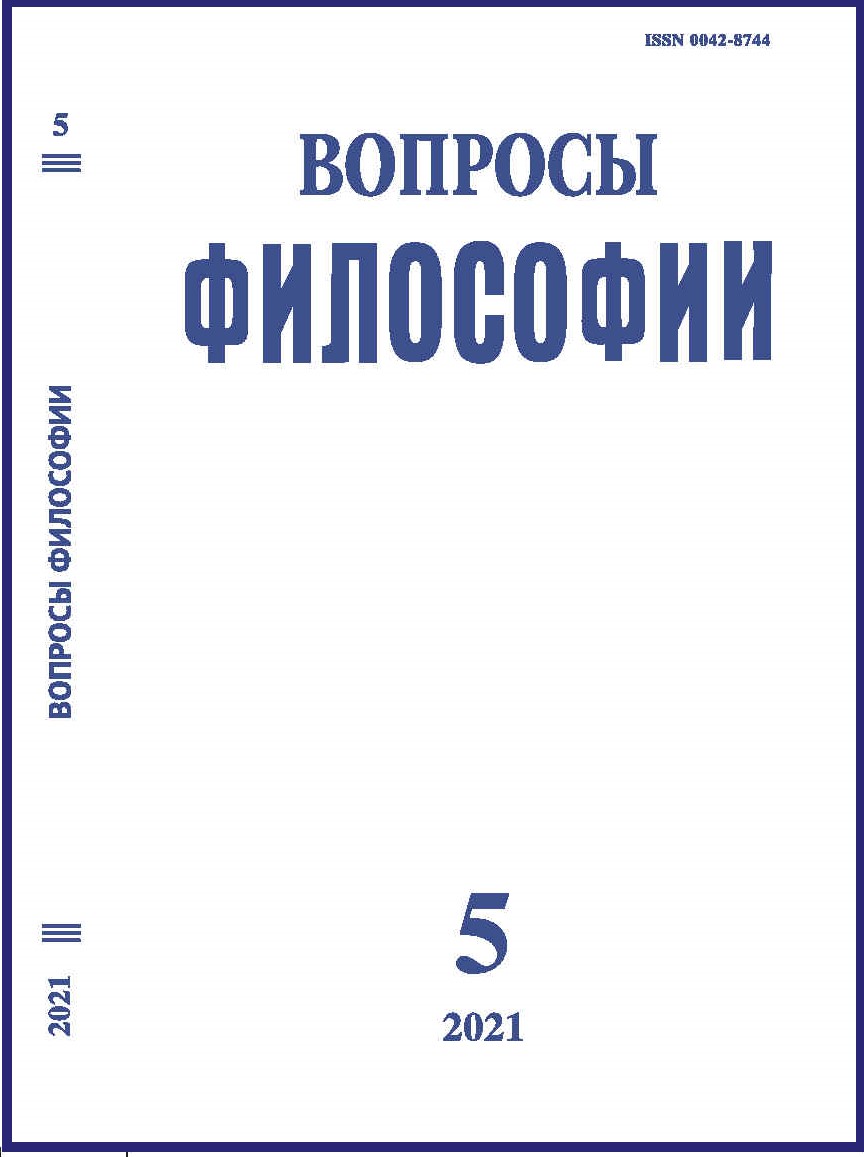Идеи В. фон Гумбольдта как locus communis в русской философии (казус В. Вейдле)
DOI:
https://doi.org/10.21146/0042-8744-2021-5-21-25Ключевые слова:
Гумбольдт, русская философия, locus communis, Шпет, язык, внутренняя форма, Вейдле.Аннотация
В статье обосновывается мысль о том, что идеи В. фон Гумбольдта оказали значительное влияние на формирование тематических приоритетов русской философской и научно-гуманитарной мысли ХХ в. Во всех сферах, так или иначе касающихся природы языка и искусства, его рассуждения оказывались поразительно актуальными и созвучными интеллектуальным поискам русских философов прошлого столетия. Так, его концепция внутренней формы языка становится своеобразным locus communis в их интеллектуальном общении. В данной статье автор стремится контурно наметить темы, которые позволяют глубже раскрыть художественно-эстетическую, герменевтическую, а также эпистемологическую значимость интеллектуальной преемственности, идущей от Гумбольдта к отечественным мыслителям. В произведениях Г.Г. Шпета, П.А. Флоренского, С.Н. Булгакова и других философов первой половины ХХ в., занимающихся проблемами языка и Слова как особых гуманитарных предметностей, так или иначе прослеживается связь с размышлениями Гумбольдта об искусстве и языке. Примечательно, что и во второй половине ХХ в. интерес русских философов к творчеству Гумбольдта не ослабевает. Об этом, в частности, свидетельствуют труды представителя философии русского зарубежья В.В. Вейдле, в которых осуществляется методологический перенос идей Гумбольдта из лингвистической сферы в художественно-эстетическую и теоретико-познавательную традицию отечественной философии.

